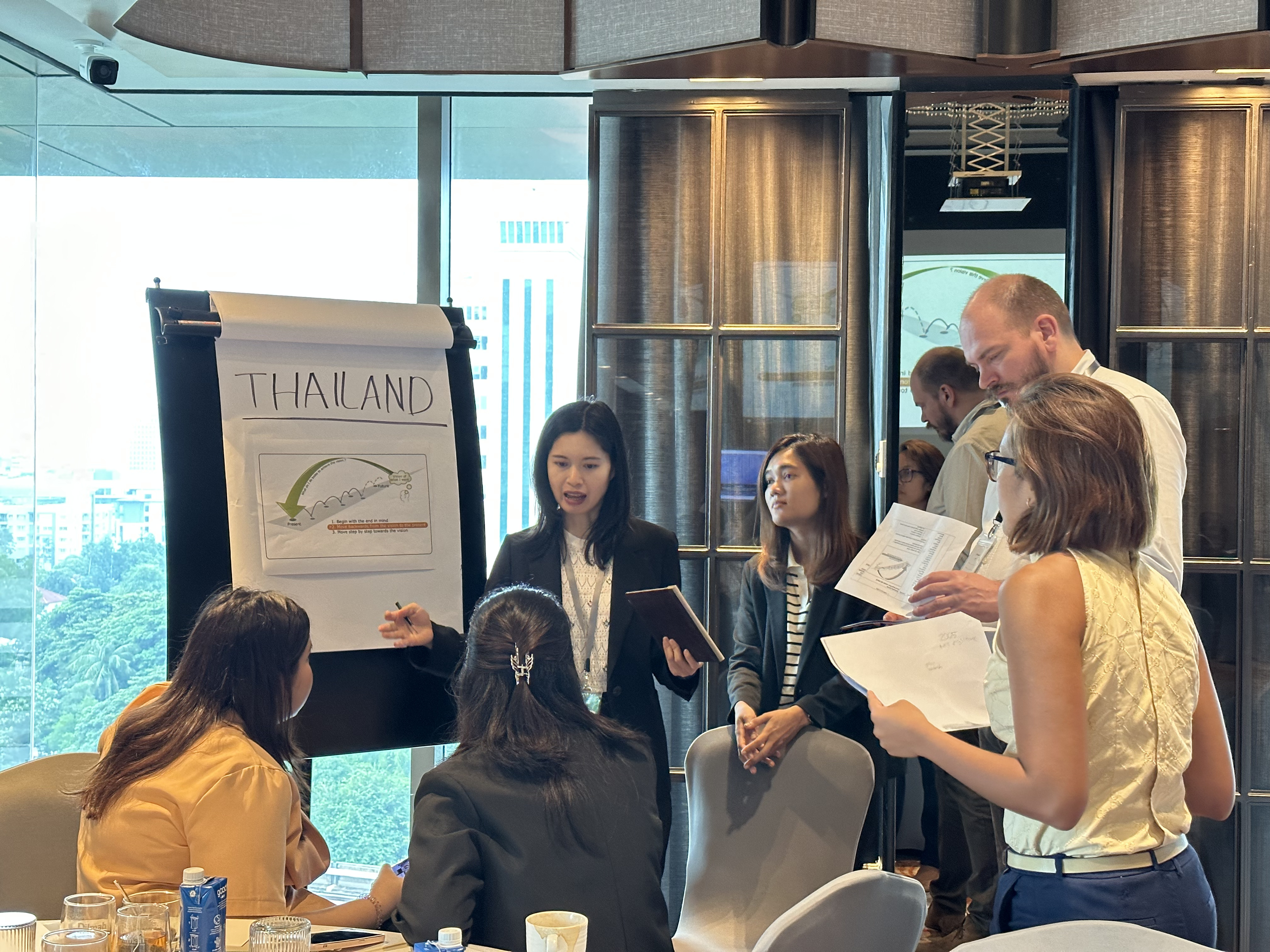More than 80 government representatives and practitioners gathered in Bangkok, Thailand, from November 6 to 9 for the UN-REDD Learning Lab and Knowledge Exchange on REDD+ Finance, Nesting, and Carbon Markets. The diverse group included participants from Cambodia, Indonesia, Lao PDR, Nepal, Papua New Guinea, Thailand, and Vietnam, and experts from UN-REDD, UNFCCC, World Bank, Emergent, ART-TREES, VERRA, as well as project developers and indigenous groups.
The learning lab kicked off with a series of lectures and group exercises, delving into the intricate landscape of results-based finance in the forest sector. Discussions covered jurisdictional, nested, and project-based approaches, non-market, and market sources, encompassing both compliance and voluntary, domestic and international carbon markets. These avenues were identified as crucial for channeling and diversifying finance to incentivize and implement REDD+ activities.
NDCs and finance as central to raising forest ambition
A central theme of the discussions was the significance of Nationally Determined Contributions (NDCs) in raising forest ambition. Participants highlighted a key barrier in realizing quantifiable LULUCF targets in NDCs: the shortfall in public and private financing, including from bilateral and multilateral sources.
The international regulatory frameworks crucial for REDD+ finance were further explored, including components of the Paris Agreement, particularly Articles 4, 5, and 6. Article 4 outlined countries' commitments to emission reduction through NDCs, Article 5 formed the foundation for forest-sector mitigation via REDD+, and Article 6 laid the groundwork for cooperative market and non-market actions to fulfill NDCs.

Carbon markets are not a panacea, but are an essential part of the toolbox
The spotlight then turned to voluntary carbon markets, addressing associated risks and opportunities. Because payments for REDD+ results remain low and processes are slow and cumbersome, carbon markets are seen as a tool to fill in the gaps in financing.
Presenters discussed the history and growth of carbon markets, with attention drawn to the downward trajectory of emissions reduction credit prices. To address this challenge, presenters underlined the importance of safeguards and core carbon principles such as additionality, permanence, no-leakage, rights-based approached, accounting to underpin the integrity of REDD+ credits.
The role of standards was also explored to ensuring that emissions reductions compensated through results-based finance and traded through carbon markets are credible, environmentally robust and socially inclusive. National and international standards, including ART TREES and VERRA JNR, were examined for their role in guiding high-integrity carbon credits, ensuring a comprehensive approach to emissions reduction.

Nesting as a key tool for integrity
Nesting emerged as a key focus, tackling challenges such as double counting and leakage. Nesting was positioned as a key tool for achieving integrity. Presenters showcased the potential of nested approaches to monitor and report results systematically while advocating for benefit-sharing mechanisms and environmental safeguards.
The strategic use of nesting was highlighted as a means to account for emissions reductions achieved at different scales, by different actors, against conditional and unconditional NDC targets.

Towards more capacity building efforts
As the four-day learning lab and exchange concluded, participants collectively explored challenges and capacity issues hindering access to REDD+ financial opportunities in the Asia-Pacific region. It highlights the need to enhance the integrity of forest carbon credits, diversify innovative financing for forestry, advance Paris Agreement Article 6 implementation, and develop the framework and structure of domestic carbon marketfor Thailand, Vietnam and Indonesia.
Representatives from Asia Pacific countries also took the opportunity to showcase their policies, capacities, and tools. They highlighted persistent implementation challenges and laid the groundwork for a sustainable future for REDD+ in the region.

Country-specific pathways to forest carbon finance
Country-specific plans and reflection documents were then designed to comprehensively address the identified challenges, aiming to facilitate effective access to much-needed financing and establish robust safeguards for the successful implementation of REDD+ initiatives. This concerted effort reflects a commitment to navigating the complexities of forest conservation and forest carbon finance, ensuring that each country's unique circumstances are considered.




